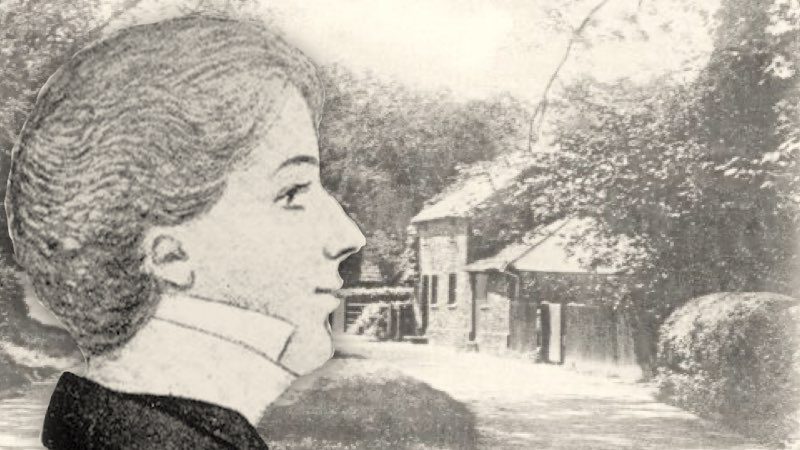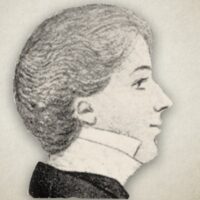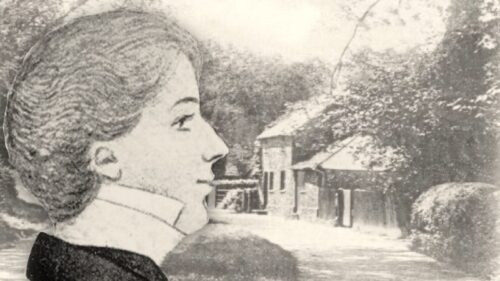
The Offense Of The Gospel
September 3, 1830
My dear Brother,
I intend (D.V.) to be at Oakham on the 14th or 15th, but I hope to be with you on the 14th by the Leicester coach, as I intend to return that way the following week, for I cannot conveniently be absent from so large a parish any longer. But you will be quite willing to part from a troubler of Israel in a few days. I shall give the greatest offence, I have no doubt, in speaking against much of the religion of the present day, which is nothing but the work of Satan, but is very near and dear to the flesh, and you will feel very loath to give it up—as unwilling as the Jews were to leave theirs for Christ. “Behold, I, Paul, say unto you that if you be circumcised, Christ shall profit you nothing.”
I had no idea that the gospel of Jesus Christ would give so much offence, but the Scriptures plainly declare it must be so; the wicked must bear their testimony to the truth. “The preaching of the Cross is to those who perish foolishness.” If what I preach is not foolishness to the natural man, know assuredly that I preach not the gospel. I trust that you can find several to bear testimony to my Christmas sermon, by saying that it contains contradictions and is foolishness. With respect to you and your wife, I have a good hope that the work is begun. You both know but little; but, “how can you hear without a preacher?” You seem to differ from others, and begin to be looked upon with a jealous eye by old acquaintance, as holding certain strange doctrines. All this promises well. You are, I trust, now considered very strange and peculiar people, and I hope that you differ not only in doctrine, but also in life and conversation. Remember this, “through much tribulation we must enter the kingdom of heaven.” Satan will frequently magnify the difficulties which you must encounter as children of God.
Christ makes a variance wherever He is preached; and the Pharisees of our day, who have the most natural religion, will be in craftiness your greatest enemies. They will trouble you with various questions, and endeavor to shake your confidence; but “nevertheless, the foundation of God stands sure, having this seal, The Lord knows them that are His.” Listen not to what any one says unless he bring the testimony of the word. Do not let their piety and great zeal for righteousness have any effect without the word of God. If you receive it, it is after all but the word of man, for you cannot say, “It is written.”
At the end of your last letter, you beg to know “whether you are not to be steadfast, unmoveable, always abounding in the work of the Lord?” Certainly; the word of God expressly declares so. But remember, your zeal must be in the strength of the Lord. I can speak more fully on the subject than I can write; but remember, “our ways are not the Lord’s ways.” The Pharisees had more zeal than the missionaries in our days, for they would compass sea and land to make one proselyte. I tell you candidly that you will be ready to say, “You bring certain strange things to our ears.” Remember, when you are bold for the religion of Jesus Christ, you will not be considered a pious and good man, but a very bad man, no, very wicked, a blasphemer, and a deceiver. They called the Master of the household Beelzebub; what, then, will they say of His servants? Are you His servant? This is hard to flesh and blood; but it is nevertheless true. The Lord is still pleased to make me a troubler of Israel at Sutton. As truth is preached, so error is made visible.
I must now conclude, with my best love to your wife and children, and all that love the Lord Jesus in sincerity.
Yours very affectionately,
William Tiptaft
William Tiptaft (1803-1864) was a Strict and Particular Baptist pastor. In 1831, he oversaw the construction of a chapel in Abingdon, where he remained as the Pastor until his death. John Hazelton wrote of him—
“William Tiptaft…exercised a ministry largely used to the awakening of sinners and to the driving of those who had only a name to live from the false confidences in which they trusted.” Joseph Philpot wrote of him—“He seemed ever ready to make any personal sacrifice for the glory of God or the good of His people. Time, money, health, strength, life itself, he did not consider his own. He felt he was but a steward who held them in trust, and who might be called at any hour to render an account of his stewardship. To live to God, to walk in His fear, to serve and please Him, to preach His truth, to do His work, to know and obey His will, and to be made a blessing to His people, seemed to be his daily end and aim. I have known men of greater natural abilities, of deeper and more diversified experience, of more shining pulpit gifts, of more enlarged views of Divine truth; but I have never seen anyone, whether minister or private Christian, who approached him in his own peculiar line of practical Godliness, carried out with undeviating consistency for the thirty-five years during which I had the pleasure and profit of his friendship. The Churches of truth needed an example of the practical power of the doctrines which they profess. A light, loose, Antinomian spirit had too much prevailed, and with a great deal of religious talking there was a very small amount of religious walking. But however low quickened souls or living Churches may sink, they have still a conscience made tender in the fear of God, and to this conscience William Tiptaft's keen, pithy remarks, and, above all, his Godly life and shining example, commended themselves."
William Tiptaft's Letters




